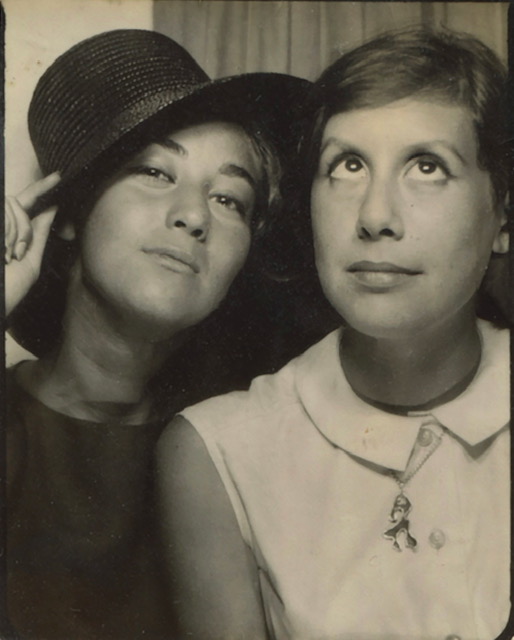People who survive for 100 years or more owe their long lives to:
- their genes
- a healthy lifestyle
- a healthy bank account
- great medical care
- an upbeat personality
- a sheltered, low stress life
- all of the above
Don’t give in to the temptation to answer “all of the above.” Only three answers are correct. More about that later.
As people approach or pass the milestone 100th birthday, everyone asks how they have lived so long. The answers are as varied as the centenarians themselves. Take 98-year-old Beatrice Wood’s explanation, in an ABC News interview, for example: “Chocolate and young men.”
We’re finally beginning to get scientific answers to questions about extreme longevity. One of the most comprehensive studies is the New England Centenarian Study (NECS), now at Boston University. Launched in 1994 by Thomas T. Perls, MD, NECS follows about 1,600 very old people and their families worldwide. This ongoing research is looking at the factors that lead to very long lives.
Longevity Genes
At least half of the NECS centenarians have had close relatives who reached an impressive age. In one family, four out of five siblings lived to 100 or older.
The children of the NECS centenarians, mostly in their 70s and 80s, tend to be unusually healthy, just like their parents. In fact, parents and offspring appear to have some sort of protection from the illnesses that become common in old age, such as cancer and heart disease.
All of that suggests centenarians are different from the rest of us. They have inherited genes that somehow enable them to live a very long time. Perls believes that most of us will have our lifespans determined 25 percent by heredity and 75 percent by our healthy and unhealthy lifestyle choices, but for centenarians, he says, heredity deserves a bigger share of the credit.
The Centenarian Lifestyle
NECS found that centenarians generally share the following characteristics:
- Almost all are healthy enough to live independently at least until age 90.
- Few are obese.
- Most have never smoked or smoked very little.
- None drink heavily, if at all.
- They are physically active.
- Almost all have many close relationships.
- Many are religious.
- Most (95 percent) make it into their 90s with their mental abilities intact.
- About one-third are free from dementia at 100 or older.
There are vast differences between the NECS centenarians in wealth, education, ethnicity, religion and even diet, but all are alike in being unusually resilient and handling stress well. They have survived the deaths of family, friends and even children, and yet they have a positive take on life. Many also have a good sense of humor. When a reporter asked one woman to name the best thing about being 104, she replied, “No peer pressure.”
In short, centenarians owe their longevity mainly to their genes, a healthy lifestyle and an upbeat personality. Though it’s good to be financially comfortable in old age, to have excellent medical care and to lead a low-stress life, those advantages alone won’t get you to 100.
How Centenarians Stay Healthy
Would you want to live 100 years or more? According to a 2005 poll conducted by USA Today and ABC News, most Americans say no. Almost two-thirds of those polled said they didn’t think they could live a century and still enjoy life.
The respondents did not want to become burdens to their families. They worried about losing their health or mental abilities as they aged, running out of money or no longer being able to take care of themselves. On average, they would settle for a lifespan of 87, nine years beyond the current life expectancy of 78.
If younger people took their health more seriously, average US life expectancy could be 85, rather than the current 78.
What few respondents seemed to realize is that centenarians are different from ordinary mortals: most stay healthy until very late in their long lives. Some chronic diseases become much more common as people grow older, including cancer, diabetes, high blood pressure, stroke, heart disease and Alzheimer’s. Fifteen percent of the NECS centenarians never had any during their first 100 years, though some did have ongoing problems with arthritis, vision or hearing. The other 85 percent had had a skirmish with an age-associated disorder in the past but had recovered completely or it was under control.
The NECS research also demonstrates that you can live to a very old age without developing Alzheimer’s. In fact, 95 percent of the study’s subjects remained mentally agile well into their 90s, and about one-third were still able to think clearly at 100. The rest had some degree of dementia caused by vascular problems or rare, degenerative conditions, not by Alzheimer’s.
Perls likes to say that the older people get, the healthier they have been.
Most of us may not be genetically programmed to live a century or more, but Perls believes that in the United States, the average life expectancy should be 85, not just 78—and that it would be if people took their health more seriously at a younger age.
The Centenarian Boom
Centenarians are the fastest growing age group in the United States. According to NECS, there are about 40,000 today. The US Census Bureau predicts that 1 out of every 26 baby boomers will reach 100, and that by 2050 there will be almost one million American centenarians.
Some researchers expect even more dramatic changes in the future. James Vaupel of the Max Planck Institute in Germany believes that half of the children born in developed countries could grow up to be centenarians. That prediction is based on the assumption that present trends will continue or accelerate. Since 1840, life expectancy at birth has been increasing worldwide by about two and a half years per decade.
Other experts, however, suggest that the current epidemic of obesity may be so devastating to health that life expectancy at birth will actually drop by the end of the 21st century.
S. Jay Olshansky, an expert in epidemiology at the University of Illinois at Chicago, believes there will eventually be two kinds of centenarians: those who have looked after their health and live vibrantly, and those who are frail, who would have died in their 80s or 90s if not for medical interventions.
Health Expectancy vs. Life Expectancy
In recent years, scientists have begun to talk about health expectancy as a counterpart to life expectancy. Your health expectancy is the number of healthy years ahead of you at any given age, according to medical statistics.
For instance, the average 65-year-old woman today will live about 19 years longer (her life expectancy), and she will be free of disabilities for 9 of those years (her health expectancy). A man the same age can look forward to another 15 years, and about half of them should be free from disability.
Health expectancy is increasing slightly faster than life expectancy, according to gerontologist Eileen Crimmins, PhD, of the University of Southern California. That’s another way of saying that people are staying well until later in life. Ultimately, healthspan may matter far more than lifespan. It will determine whether the oldest are crowded into nursing homes or lead vital, independent lives.
Are You Likely to Be a Centenarian?
If you have the following characteristics, according to Perls, you may be blessed with the genes that make extreme longevity possible:
- You are in excellent health.
- You have long-lived parents who were healthy in their later years.
- You look younger than your chronological age.
- You have low blood pressure (the average centenarian’s blood pressure is 110/80).
- You are a woman and gave birth after 40 without fertility treatments.
Perls’ research on centenarians suggests that all of us would do better if we planned to live at least 100 years and made forward-thinking decisions in midlife about our health. Even if we don’t quite reach 100, those decisions should help us hold serious medical problems at bay until very late in life.
| “Centenarians paint a stunning picture of aging’s potential. They demonstrate that long life can mean a healthy, enjoyable life, a life with friends and loved ones close by, a life of satisfaction.”
From Living to 100 by Thomas T. Perls, MD, MPH, and Margery Hutter Silver, EdD, with John F. Lauerman (1999). |

Flora Davis has written scores of magazine articles and is the author of five nonfiction books, including the award-winning Moving the Mountain: The Women’s Movement in America Since 1960 (1991, 1999). She currently lives in a retirement community and continues to work as a writer.



